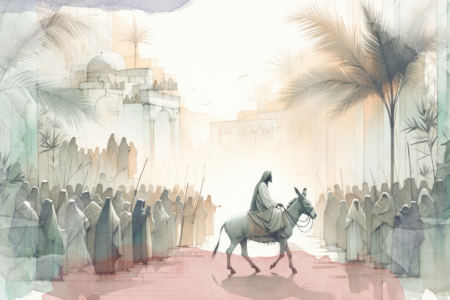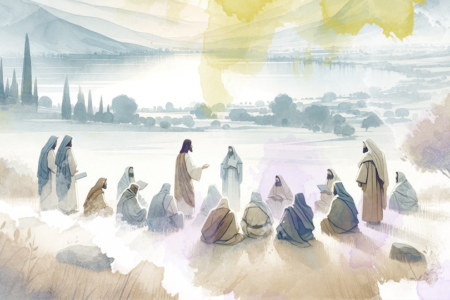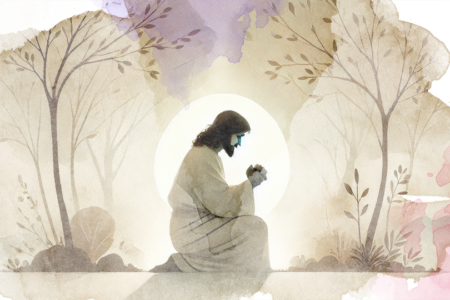Sixty Seconds With The International Director
Among all the major biblical personalities only of two can it be said there is no recorded failure in their lives. For instance, Abraham had lapses of faith; Moses disobeyed; David indulged; Peter denied; Paul persecuted. Joseph and Daniel alone have no word of condemnation lodged against them. Fascinatingly, a comparison will show both were taken captive into Gentile lands; both were given Gentile names; both were imprisoned; both resisted temptation; both conducted themselves circumspectly; both had dreams; both were interpreters of visions; and both rose to the position of prime minister in their adopted countries — Joseph in Egypt and Daniel in Babylon. Throughout their illustrative lives both maintained a loyal love for their brethren according to the flesh. As a result of that love, both men communicated to the world a great body of truth concerning Christ, Israel and end-time events. Daniel did so through the prophetic book which bears his name; Joseph through the typology of his life’s experience. Apart from the events surrounding the earthly ministry of the Lord himself, perhaps no portion of the Word of God evokes purer emotion, tenderness, compassion, long-suffering and love than the life of Joseph, great grandson of the Patriarch Abraham.
See him firstly as the BELOVED SON. Jacob loved Joseph more than all his children (Gen. 37:3). The tunic or coat of many colors was the outward attestation of his father’s regard. Similarly, the Lord Jesus is presented as the, “… beloved Son, in whom I am well pleased” (Matt. 3:17).
See Joseph secondly as the REJECTED SERVANT. He was hated by his brethren.
”And when his brethren saw that their father loved him more than all his brethren, they hated him, and could not speak peaceably unto him ” (Gen. 37:4).
Similar words are used to describe the relationship of Jesus with His brethren.
“If I had not done among them the works which none other man did, they had not had sin: but now have they both seen and hated both me and my Father” (Jn. 15:24).
Joseph was sold to the Gentiles for twenty pieces of silver (Gen. 31:11, 28). The eternal God brought only thirty pieces of silver at His betrayal (Matt. 27:9). Joseph suffered indescribable hardship — the mental anguish of being rejected by his brethren and separated from his father — the imprisonment in an Egyptian dungeon — the indignities of being sold in a slave market — the temptation in Potiphar’s house. All this and more he triumphed over. In Jesus, all of Joseph’s sufferings find their counterpart. Jesus was tempted in all points, yet without sin (Heb. 4:15).
Thirdly, see Joseph as the EXALTED SAVIOUR, languishing in prison but now raised to the position of deliverer. In a day of worldwide famine, he alone had the bread that would sustain life.
“And all the countries came into Egypt to Joseph to buy grain; because the famine was so severe in all lands” (Gen. 41:57).
Again the counterpart is found in the Lord Jesus who said,
“I am the living bread which came down from heaven: if any man eat of this bread, he shall live forever: and the bread that I will give is my flesh, which I will give for the life of the world” (Jn. 6:51).
But not only was Joseph exalted for the purpose of world redemption. He was also exalted to receive glory from his brethren. He revealed himself to them after they acknowledged their sin (Gen 45). In a special way, he provided for them (Gen. 47:11, 12), and through and with them he consummated the divine plan (Gen. 45:5-9). One day Israel will look upon Him whom they have pierced and mourn as one who mourns for an only child (Zech. 12:10). The Lord Jesus will provide for her, for in that day a fountain of cleansing will be open to the descendants of David and to the inhabitants of Jerusalem (Zech. 13:1). Through Israel, repentant, restored, believing and blest, God will consummate His program for all human history.
“For if the casting away of them be the reconciling of the world, what shall the receiving of them be, but life from the dead?” (Rom. 11:15).
As perhaps nothing else ever could, the story of Joseph and his brethren gives to us, however limited, “through a glass darkly,” a glimpse of file tenderness, compassion, long-suffering and love of Christ for wayward Israel and what that reunion will one day mean for them and the world.







